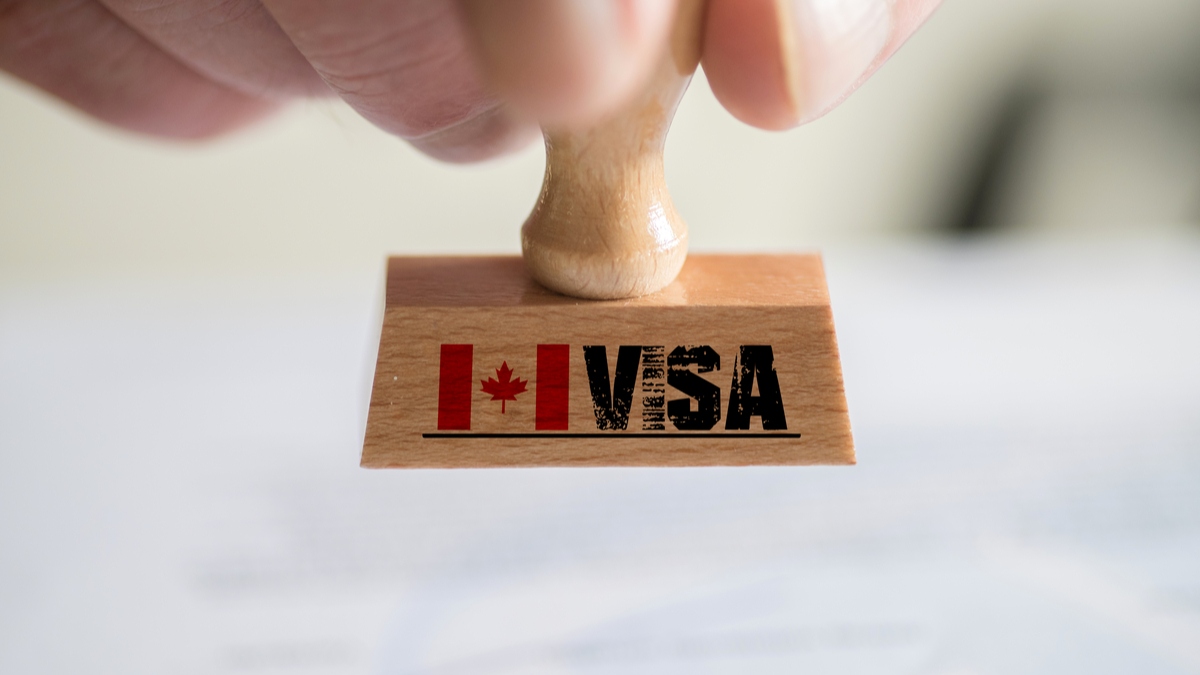How to Get a Job in Canada from India
September 3, 2021
|
Currently, India’s unemployment rate among young urban youth is the highest it has ever been at 22.5 percent. A big percentage of those employed are getting paid below wage and are stuck in an employed poverty trap.
A benefit of working in Canada is that employees cannot receive below wage and each province has a minimum wage that the employer has to follow. The territory of Nunavut currently has the highest minimum wage in Canada at $16 an hour.
If this is something that sparks interest, continue reading to learn more on how to get a job in Canada from India and joining over 1.4 million Indians living in Canada.
4 Steps to Get a Job in Canada

1. Update your current resume to match the job you are searching for
Before applying for any job, applicants should always tailor their resumes according to the jobs they are applying for. This can only increase their chances of getting an interview and possibly the job. Here are a few tips to improve resumes:
- Update the resume design to a more modern look which will give the recruiter a pleasant reading experience.
- Condense as much information as possible in order for recruiters to easily skim through. Applicants need to convey that they are the right fit for the job.
- Highlight efforts during the pandemic, by doing this applicants will show recruiters how resilient they have been.
- Since the pandemic, remote work has become a big part of the workforce. This is why applicants should add any remote work skills they may have gained and mention collaboration tools such as Google Docs, Asana and Trello.
- Add measurable results, this will show recruiters the applicant's skills and abilities.
- Companies are beginning to use software to scan applications. By highlighting keywords and specific skills listed in the job description to include in the resume, the applicant’s chances are higher to be seen by a recruiter.
2. Get a Canadian work permit
Every foreign national who wants to work in Canada must have a work permit in order to do so. Applicants can be eligible for one of the two work visa types, the visa type will depend on the job the foreign national wants to apply for.
The visa types are:
- Open work permit - foreign nationals are free to work for any Canadian employer in any province in Canada.
- Employer-specific work permit - foreign nationals will be restricted to working under certain conditions such as the name of employer, how long they can work for and the location in Canada.
Obtaining an open work permit can be obtained via the International Mobility Program which has several programs including the Post-Graduation Work Permit Program (PGWP). The PGWP allows graduates to work in Canada for any employer and at any location.
This is a great way to obtain an open work permit and eventually live in Canada permanently. Canada is actually the top destination for Indian students. According to official statistics from the Canadian High Commission in Delhi, for the first four months of 2021, nearly 100,000 study permits were issued to international students.
What do international students need to qualify for the PGWP?
- A valid study permit;
- A valid visitor record;
- Submitted an application to extend their study permit before it expired and no decision has been made on your application; and
- Studies at a program at a Designated Learning Institution (DLI).
The table below is how an applicant can determine the length of their permit.
| How to Determine PGWP Period | |
|---|---|
| Length of study program | Length of work permit |
| 8 months - 2 years | Same length as students study program (Master's and Doctoral candidates may be eligible for a 3-year work permit) |
| 2 years or longer | 3 years |
| More than one program completed within 2 years | Length of both programs combined (if the combined length is 2 years or longer the work permit should be valid for 3 years) |
Obtaining an employer-specific work permit, also known as a closed work permit, can be done through the Temporary Foreign Worker Program (TFWP). Streams that fall under the TFWP include the Global Talent Stream, High and Low Wage Stream and the Agriculture Stream.
Agriculture Stream
The Agricultural Stream allows employers to hire Temporary Foreign Workers (TFWs) for a maximum period of 24 months when Canadians and permanent residents are not available. Qualifying employers must meet these requirements:
- their production must be in specific produce sectors; and
- the activity must be related to on-farm primary agriculture.
A great upside of this program is that the Canadian employer will need to provide certain things for the foreign temporary workers, such as paying for the round-trip cost to Canada, day-to-day transportation to work, on-farm or off-site housing and health insurance.
3. Apply on all job application platforms
In 2021, applying for a job means to apply on several different online job portals. Popular Canadian online job sites include:
- LinkedIn;
- Indeed;
- CareerBuilder
- Monster;
- Glassdoor;
- Job Bank; and
- Simply Hired.
Also, make use of social media postings and reaching out to HR consultants and applying directly on company websites.
4. Gain permanent residency in Canada to boost job application success

Foreign nationals who would like to increase their chances of landing a job in Canada should apply for permanent residency, as this makes things easier for Canadian employers. Canadian permanent residency can be obtained through several programs, including Express Entry.
Express Entry
Express Entry is an online system that manages three federal immigration programs. They are the Federal Skilled Worker Program, the Federal Skilled Trades Program and the Canadian Experience Class. Applicants need to meet the requirements for one of the three programs in order to be part of the Express Entry system. Applicants are then placed into a draw pool among other eligible applicants and are given a Comprehensive Ranking System (CRS) score which ultimately ranks them.
Each draw that takes place has its own CRS qualifying score, those who meet or exceed the score will be given an Invitation to Apply (ITA). This allows the applicant to apply for Canadian permanent residency.
What Jobs Are In-Demand in Canada?

A great way to get a job in Canada from India is to apply for a job that is in-demand in Canada as the need for the applicant’s skills may increase the success of getting the job.
Below are a few jobs that are in demand in Canada right now.
| Canada In-Demand Jobs 2021 | |
|---|---|
| Occupation | NOC Code |
| Web Developer | 2175 |
| Financial Advisor | 0111,1114 |
| Pharmacist | 3131 |
| Welder | 7327 |
| General Labourer | 7611 |
| Administrative Assistants | 1241 |
| Driver | 7511,7521,7552 |
| Registered Nurse | 3012 |
| Industrial Electrician | 7242 |
| Sales Associate | 6411 |
Each province has its own occupations that are in demand. Through the Provincial Nominee Program (PNP), foreign nationals can get nominated by a province that will allow them to work and live in that particular province.
Applicants can apply for a nomination either directly to the province of their choice or through the Express Entry system. Going through the Express Entry system definitely has its advantages such as PNP streams having lower CRS cut-off scores than regular Express Entry draws.
Please note that flights from India are suspended until September 21, 2021, this includes travellers who have transited through India. This should not discourage those who are in India as they are still able to start their Canadian visa application process, and if successful, move to Canada when the suspension has been lifted.
Work and Live in Canada
Most Indians in Canada live in the provinces of Ontario and British Columbia. These cities are known for their big-city appeal, it is just the place for career go-getters to make their mark.
Newcomers will also notice Indian communities in Alberta and Calgary which are known for their oil and natural gas and for being one of Canada's wealthiest, cleanest and most liveable cities, respectively.
Better your future with the knowledge on how to get a job in Canada from India and start the Canadian journey!
